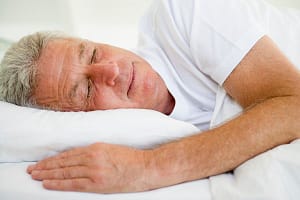Drinking alcohol has been widely normalised in many cultures and has been made readily available to buy and consume. People turn to the substance to relax after a hard day’s work, as a way to socialise with friends, or when celebrating a special occasion. However, if people are dealing with mental health issues or difficult problems, drinking alcohol can turn from something fun into a substance use disorder.
Alcohol use disorder – or alcohol addiction – is characterised by a chronic relapsing condition associated with compulsive alcohol drinking. Here people lose control of their intake and the drug, despite the negative consequences its consumption may have on their health, relationships, and career.
Alcohol withdrawal syndrome
Alcohol is a central nervous system (CNS) depressant, slowing down the function and communication of nerves throughout the brain and body. When someone drinks alcohol long term, the CNS adapts to the large amounts of the substance being consumed. It does this by forcing the brain to work harder by keeping it in an awake state to ensure communication between nerves is sufficient to keep the body functioning. This state of overdrive results in physical and chemical changes throughout the body and brain.
If a person in this situation were to suddenly stop drinking or dramatically lower their alcohol intake, they would experience withdrawal symptoms, as the CNS is still in its keyed up state. Depending on the severity of the alcohol use disorder and the person’s medical background, these symptoms can range from mild to severe.
Six hours after stopping drinking
Initial mild symptoms can kick in around six hours after someone’s last drink, including:
- Headaches
- Sweating
- Tremors
- Nausea
- Vomiting
- Anxiety
- Insomnia
12-48 hours after stopping drinking
From twelve hours onward after stopping drinking, symptoms can start to get more serious. These may include:
- Hallucinations (seeing, hearing, and feeling things that aren’t there)
- Seizures
48-72 hours after stopping drinking
Around 5% of people undergoing alcohol withdrawals experience delirium tremens (DTs) during this period. These can be life-threatening so it is always advised to seek medical help if any of these symptoms appear. These symptoms tend to diminish after five days. They can include:
- Heavy sweating
- Fever
- High blood pressure
- High heart rate
- Confusion
- Vivid hallucinations
- Vivid delusions
- Cardiac failure
3-7 days after stopping drinking
The reminder of the first week of detox, different symptoms will come and go. However, during this period people are still at risk for life-threatening symptoms.
From 7 days after stopping drinking
Most of the withdrawal symptoms will have tapered off after the first week of detox, with most of the lingering symptoms being able to be treated with medication. However, even after these initial symptoms have worn off, some stil experience post-acute withdrawal syndrome (PAWS). These prolonged symptoms can last from a few months to a year, and may include:
- Low energy
- Delayed reflexes
- Sleeping issues
- Anxiety
Alcohol detox
The first step for people addicted to alcohol who want to nip their drinking in the bud is detoxification, which unfortunately means having to face alcohol withdrawal. These symptoms usually peak around ten-to-thirty hours, though typically subside within one or two weeks after someone’s last drink.
Detoxification at home
For people with milder forms of alcohol use disorder, it is possible to go through this process in a supportive environment of your choosing. It is helpful to choose a place that:
- Is quiet
- Has soft lighting
- Has limited contact with people
- Can supply healthy food and lots of fluids
- Has a positive and supportive atmosphere
In addition, a number of at home detox services are available for those with mild to moderate forms of alcohol dependency.
If the person detoxifying at home starts to present more severe symptoms – such as high blood pressure, seizures, and hallucinations – it is advised that professional medical care is sought after immediately.
Medically assisted detoxification
For people with more intense forms of the disorder or other health conditions – especially those with a history of heart and lung diseases – a medically-assisted detox is advised. Here, trained professionals can assist in making the process as safe and comfortable as possible with around-the-clock care.
Medical staff will be able to track blood pressure and heart rate to ensure it is in safe ranges. They are also likely to provide an intravenous drip, ensuring levels of water and nutrients are balanced in the blood.
Inpatients will be given opportunities to report the symptoms they are experiencing and medication will be able to be subscribed to help alleviate the discomfort, help repair the damage alcoholism has done, or prevent the further consumption of alcohol. The different kinds of medication typically used include:
- Benzodiazepines (benzos): These are the most commonly used drugs during an alcohol detox. Benzos are CNS depressants, so help treat symptoms such as anxiety, insomnia, and seizures.
- Naltrexone: It helps reduce the intense cravings for alcohol people experience.
- Anti-seizure medication
- Antipsychotics
- Acamprosate: This medication works to help restore brain function, reduce alcohol cravings, and prevent PAWS symptoms.
- Disulfiram: In order to deter people from drinking alcohol, disulfiram works by causing its users to experience unwanted side effects if alcohol is consumed. This includes facial flushing, weakness, headaches, nausea, and low blood pressure.
What’s next?
A medical detox is the first step on the road to recovery from an alcohol use disorder, though there are many more steps needed in order to achieve long-term sobriety. Thankfully, there are a number of research-based treatments that have helped millions of people overcome their addiction. Commonly these include:
- Inpatient treatment: It can be useful for people overcoming an addiction to get out of the environment where their drinking took place. Rehabilitation centres allow for new habits and coping mechanisms to be learnt before having to confront everyday life again.
- Therapy: This treatment is extremely important when overcoming an addiction. Through speaking to a trained professional, triggers to drinking are able to be identified, and new coping mechanisms can be put into place. Cognitive-behavioural therapy (CBT) is usually recruited to treat substance use disorders as it has previously shown clinical success.
- Support groups: These non-judgemental spaces create an environment where stories can be shared between people who have undergone similar hardships. Here, advice can be given and inspiration can be taken.






Leave a Comment